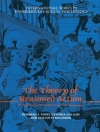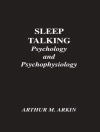The Wiley Handbook on What Works with Girls and Women in Conflict with the Law
The most practical discussion of the rehabilitation of girls and women in conflict with the law in the correctional arena
What Works with Girls and Women in Conflict with the Law is the leading examination of evidence-based practice in the field of gender-responsive corrections. Adopting an international and intersectional approach, the distinguished authors seek to collect the best available data and thinking on what works with girls and women and apply it to the real-world problems facing correctional systems today.
As part of its contextual and rich approach to the subject, What Works with girls and women in conflict with the law, covers a broad variety of topics, ranging from theories of female involvement in crime, security classification and risk assessment, evidence-based treatment and supervision approaches, special populations (such as Indigenous women), to legal/policy developments in the field of gender-responsive corrections.
Perfect for students and practitioners in the field of psychology, criminology, social work, criminal justice, and corrections, this is the only reference of its kind to focus on the practical applications of the latest theory.
O autorze
Shelley L. Brown, Ph D, Department of Psychology, Carleton University, Ottawa, Ontario, Canada. Shelley Brown is an Associate Professor of forensic psychology within the Department of Psychology, Ottawa, Canada. She completed her Ph D in 2002 at Queens University with a focus on dynamic risk assessment among adult men under correctional supervision in the community. Following a 10-year research career with Correctional Service of Canada, she joined Carleton University in 2006. Since arriving at Carleton, Shelley’s program of research has shifted focus, and now concentrates on improving gender responsive services for girls and women in the criminal justice system using a mix of quantitative and qualitative approaches. In 2006, Shelley co-authored, The assessment and treatment of women offenders: An integrated approach. Since then, she has maintained an active program of research designed to improve the lives of girls and women who come in contact with the criminal justice system. Shelley has also received teaching achievement and mentoring awards since arriving at Carleton.
Loraine Gelsthorpe, Ph D, Institute of Criminology, University of Cambridge, Cambridge, UK. Loraine Gelsthorpe is Director of the Institute of Criminology and (full) Professor of Criminology and Criminal Justice. She completed her Ph D at Cambridge in 1985; she had post-doctoral positions at the University of Lancaster, UCNW (Bangor), and at the LSE, before returning to the Institute as a Senior Research Associate in 1991. She gained a tenured position as a University Lecturer in 1994. Loraine is also Director of the Cambridge ESRC Doctoral Training Partnership (across the Social Sciences in the University), and Director of the Centre for the Study of Global Human Movement, an interdisciplinary initiative across the University. She is a Fellow of the Royal Society of Arts (for distinguished contributions to criminology & criminal justice) and a Fellow of the Academy of Social Sciences (for notable contributions to the social sciences). She was President of the British Society of Criminology 2011-2015, and in 2021 was awarded the European Society of Criminology Lifetime Achievement Award for her outstanding contribution to European Criminology. Her work revolves around women, crime, and criminal justice; human trafficking; criminology, sentencing and the penal system.












